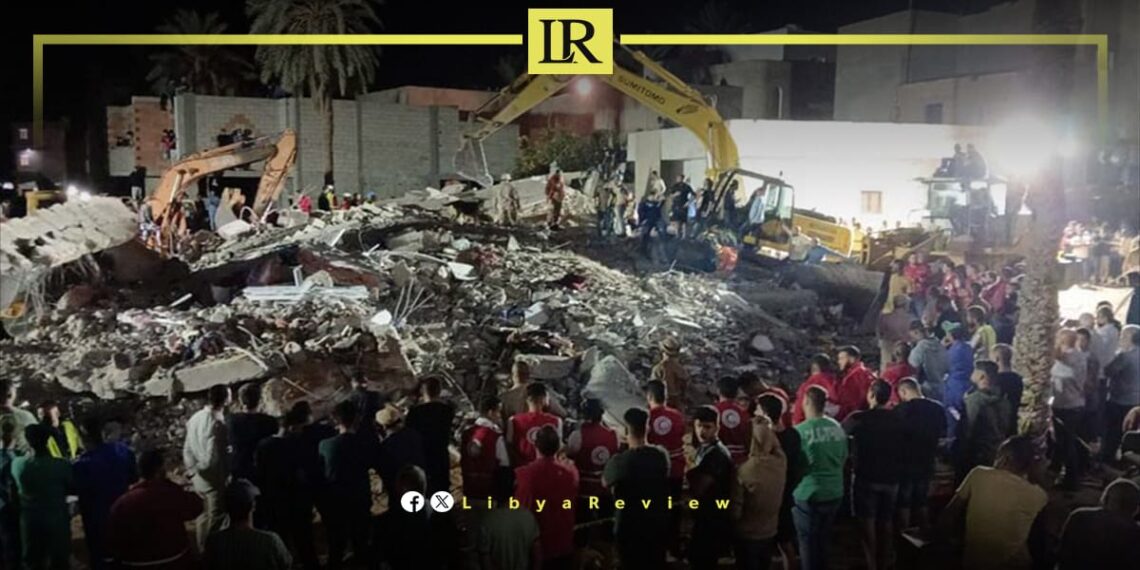The spokesperson for Libya’s Ambulance and Emergency Service, Osama Ali, has stressed the need for improved preparedness following the tragic building collapse in Janzour, which claimed the lives of eight people. He highlighted the lack of resources necessary to effectively respond to such incidents, calling for better planning to prevent future tragedies.
Speaking to Wtv’s Special Coverage, Ali emphasised the repeated challenges responders face in Libya. “Since the Derna disaster, we are confronted with a new type of incident every time, which demands a shift in our emergency response approach,” he said.
Ali warned that this recent collapse underlines the risk of similar incidents in the coming years, urging new levels of preparedness, training, and rapid-response capabilities. He further noted that without the collaborative efforts of local authorities and Janzour residents, ten survivors would not have been rescued. “The cooperation made the difference, not our resources,” he said.
He also pointed out that Libya lacks essential tools for effective rescue, such as thermal cameras and scanning equipment for locating people trapped in confined spaces. “Emergency response technology is advancing globally, yet we are missing the necessary equipment to safely clear concrete and debris,” he remarked.
Fathi bin Issa, the head of Janzour’s steering committee, acknowledged the crucial role played by the local community and the municipality in rescue efforts. He reported that among the eight casualties were Egyptian and African nationals, with 12 others injured—two seriously, while ten are in stable condition.
Bin Issa also thanked the security forces, particularly the Security Support Unit, for their assistance at the scene.


